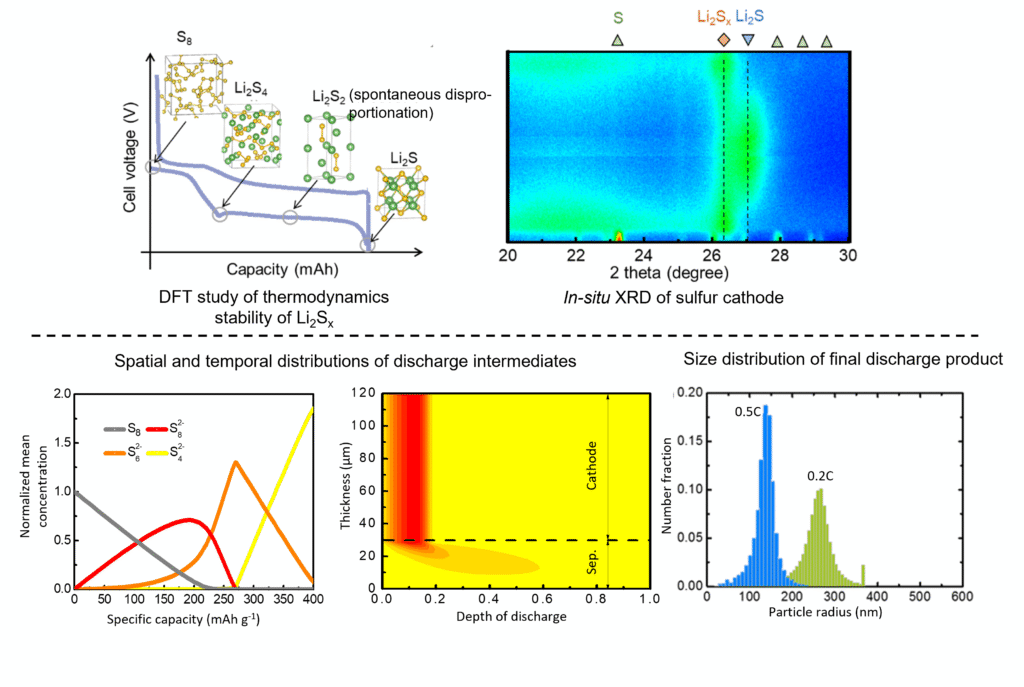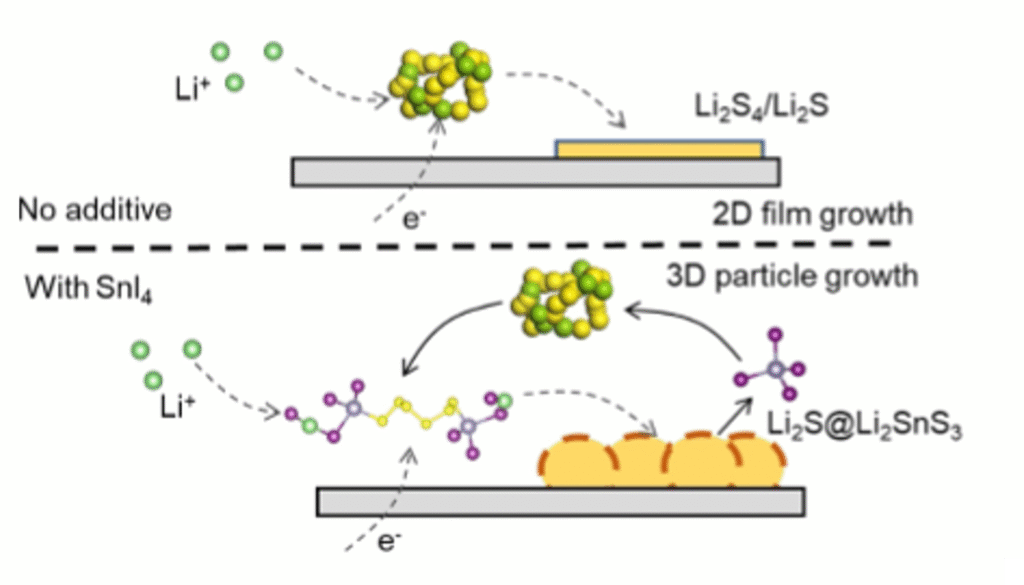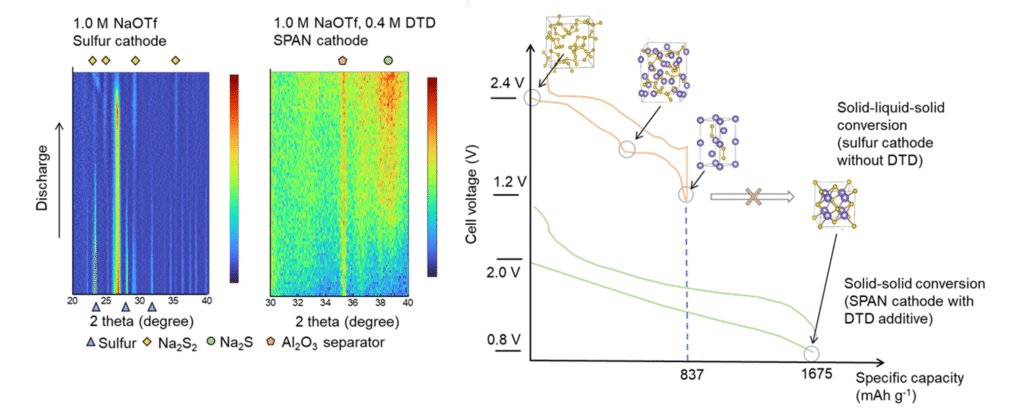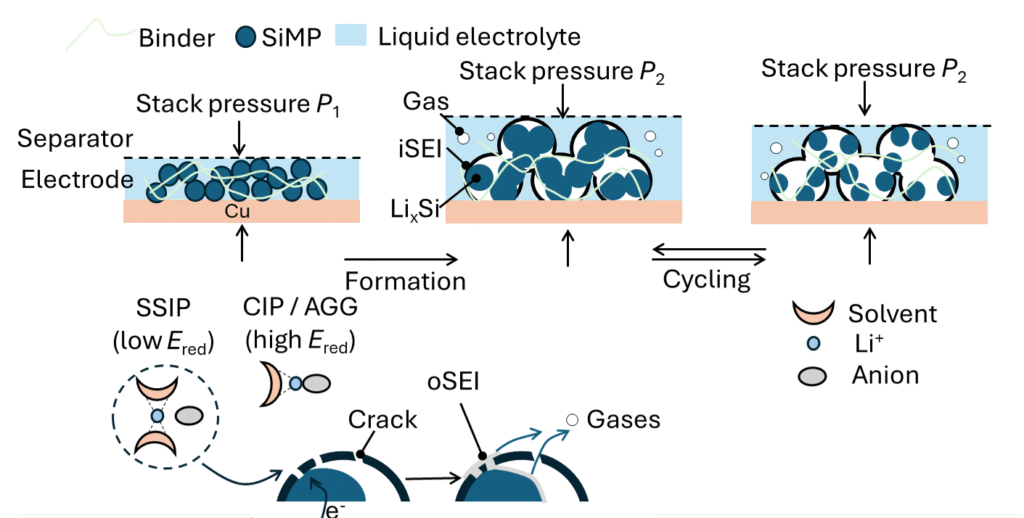Ongoing Research Projects
Our research spans from the battery material development to data-driven battery modeling. The primary goals of our research are (1) original discovery of materials and mechanisms for next-generation batteries, (2) practical applications of battery cells/systems in long-duration energy storage/electric vehicles. We are also applying our expertise in material science in other areas such as plasma science.
Our research is highly interdisciplinary. We collaborate with multiple external and UCF research groups in our efforts.
The lab is equipped for battery cell prototyping, testing and modeling. Please check our lab facilities page for more details. Interested collaborators from industry are welcome contact Yuxun Ren (yuxun.ren@ucf.edu).
1. Digitalization of Energy Storage System
With the scale up of battery system and unforeseeable degradations of batteries, it becomes increasingly difficult to describe the battery’s behavior during operation with a physical model.
The physics-informed data-driven model leverages simplified physical model, historical and real-time battery data to predict performance metrics of energy storage system, and degradation trends.

2. Understanding the Full Life Time of Energy Storage System
With the rapid growth of battery industry, batteries have been involved in almost every aspects of human life. While developing a new battery technology, primary focus is given to building competitive battery products with a focus on the performance and cost. It is as important to build “battery system cycle” and “battery chemical cycle” in the energy ecosystem.

3. New Material and Mechanism Discovery for Energy Storage
Based on our previous expertise on battery materials, we are discovering new materials for electrodes and electrolytes in lithium/sodium batteries. The goal is to make the batteries safer, cheaper and more recyclable. In addition, we are very interested in exploring the material degradation mechanisms and discovering new mechanisms to enable high storage capacity and stability. Below is the battery testing data using an electrolyte we collaboratively develop with UCF Chemistry.
4. Power to Chemical Conversion System
Beyond battery energy storage, we are also exploring alternative pathways to utilize grid electricity. One promising direction is the plasma-catalytic system powered by high-voltage alternating current (AC) directly from the grid. The non-thermal, non-equilibrium plasma enables a wide range of chemical reactions at near-room temperature with a simple reactor configuration. Our research centers on understanding the fundamental interactions between plasma and materials, including catalysts, reactants, and products, to elucidate how these dynamic plasma–material interfaces govern reaction mechanisms and selectivity.

More to come, stay tuned!
“If you want to go fast, go alone. If you want to go far, go together.”
Completed Research Projects
1. Understanding the coupled mass transport and reaction in high-energy sulfur cathode
J. Power Sources 336, 115–125 (2016)
J. Power Sources 396, 304–313 (2018)

2. Tailoring the liquid electrolyte for high-performance sulfur cathode
Angewandte Chemie International Edition, 202207907 (2022)
Advanced Energy Materials, 2106680 (2022)

3. Designing sulfur cathode for sodium batteries
ACS Energy Letters, 2746-2752 (2023)

4. Designing electrolyte and interphase for high-strain anode
Nature Communications 10, 3249 (2019)
Energy Storage Materials 25, 217-223 (2020)

5. Chemo-mechanics of solid-state batteries
ACS Energy Letter 6, 345-353 (2021)
Advanced Energy Materials, 202200190 (2022)
Advanced Functional Materials, 2106680 (2021)
Journal of The Electrochemical Society 169, 6 (2022)
J. Mater. Chem. A., 9, 13804-13821 (2021)
